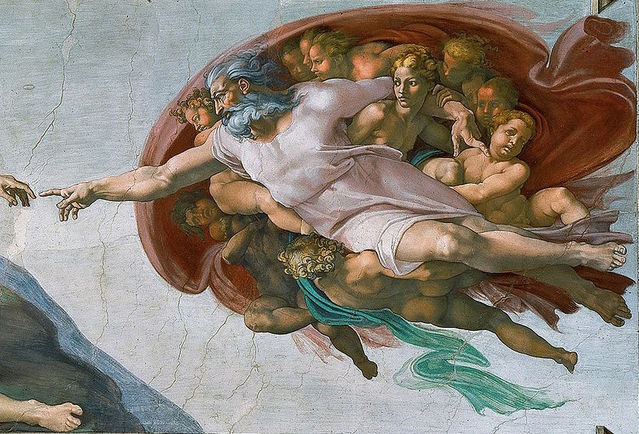
An Apprehensive Atheist
For the last few years, I have been incessantly disputing about and ruminating over the validity, truth, and pertinence of faith (in this case, Christian). I have repeatedly reviewed, criticized, and amended my philosophical and theoretical positions in an attempt to discover that which was objectively correct. However, I believe that over the last year my opinion of veracity has become radically more pragmatic and realistic (pace Jordan Peterson's influence). When I envision idealism vs. realism mapped onto the single-axis version of the political compass, it presents itself as a direct correlation with left vs. right. This may be an oversimplification, but bear with me.
My formerly acclaimed post-mortem mentor Christopher Hitchens was not only guilty of having faith based utopianistic views (Trostkyist/Rosa Luxemburgist sympathies, and romanticizing The Prophet Outcast as some sort of ostracized materialist messiah)during his youthful proselytizing days, but also during his illusory ideological "emancipation." I don't even need to address his frequently perceived "neocon conversion." In several late interviews, Hitchens asserted that he "no longer held any political allegiances" and that "he left hold of the doctrinaire, to let his chain-less mind do its own thinking"; the latter being a direct quotation from his memoir. I hold this profession to be almost more delusional and megalomaniacal than his initial socialist convictions. Ironically, he seemed to have been aware of this paradox to a degree. Having often stated that he still "thought like a Marxist" and "believed in the materialist concept of history, involving the importance of the dialectical interpenetration of opposites." However, the first musketeer of New Atheism isn't a complete hypocrite. There is one salient consistency: Hitchens died a radical and a dissident. His idealistic views of a society run by the precepts and teachings of Democritus, Galileo, Hume, Lucretius, Paine, Russell, and Voltaire hold something of the same allure that the Libertarian party's mystique does to contrarian youth alike. Its improbability and impracticality are what keep it mouth-watering and digestible.
I mention the Hitchens digression only as a simulacrum and representation of something far more widespread and conventional (much to Christopher's dismay)in prevailing Western thought. The assumption that once one has espoused Atheism/Secularism and begins to study Philosophy and Psychology (as I believe is intellectually and morally necessary), their ethics are justifiably divorced from monotheism and religious thought. This position concerns me, as does the assertion of rationalistic purity being the paramount pathway forward after the scientific revolution.
I am no longer convinced that the cult of reason and scientific inquiry is truly as open-minded as I once esteemed. There's a dissatisfying reaction made by the faithless once they discover that a beloved public intellectual doesn't adorn the atomic A across their breast. Unintentionally, I believe I have reached a point of controversial post-theism; the same position that many young men occupy after they have converted to Christian Atheism having watched an episode of JBP's biblical series. This is ironically such "easy virtue" that attempts to fill a gaping rotundity with a hollow sphere. The intellectualism is ignoring the pragmatism; smug young erudites can adhere to an antiquity-adoring New Age Secularism, leaving laymen in the lurch. How are the masses to address questions of metaphysics? Here's a secret: The new crypto-secular prophet doesn't know either! Pity the intellectual soaring above the multitudes, only to realize that he too, must check the weather channel for flight conditions.
The old specter that once haunted Europe is not the only replacement in sight, nor is its slow-witted, pathetic, and twisted-compassion ridden cousin of social justice. People may boringly and insipidly accuse Harris and Dawkins of fundamentalism, but Peterson is right: "the probability that regular folk construe God or belief in the same way that he does is virtually ZERO." Beware the pompous and impressionable adolescents flirting with dogmatism - Jung's fascination with story-telling may resurrect a literally crucified and buried and Christ.